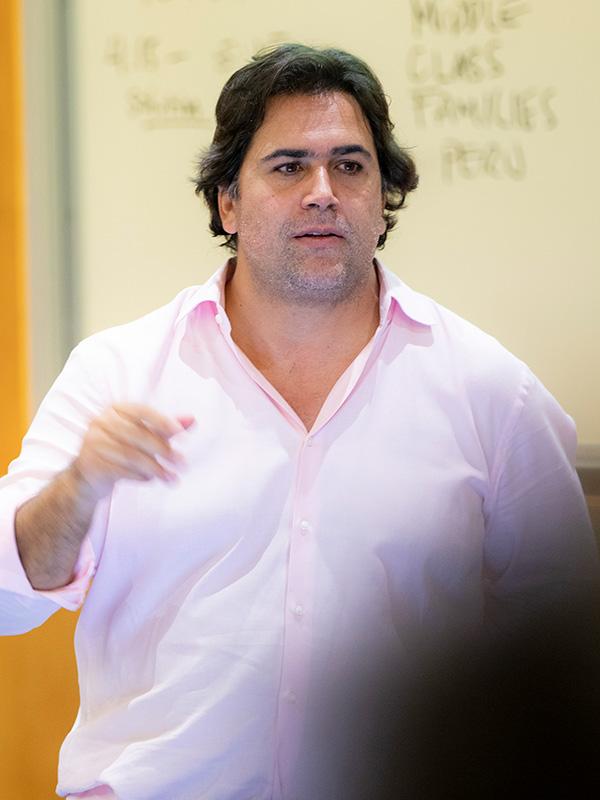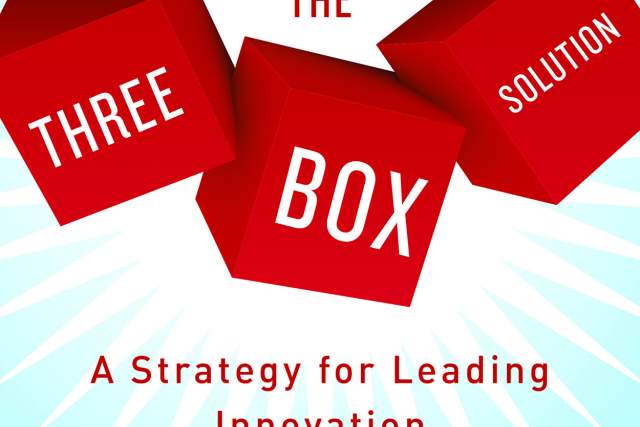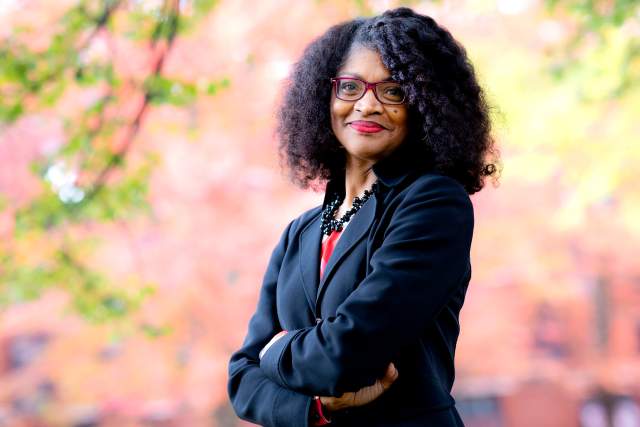Each fall for 25 years, rising executives from some of the world’s top companies have come to Hanover to begin a nine-month-long journey across the world through the Tuck Global Leadership Program.

Ramon Lecuona Torras (pictured) is co-director of the Tuck Global Leadership Program. He is an assistant professor of business administration in Tuck’s strategy group.
Unlike many executive education programs, Global Leadership is sponsored by a consortium of non-competing companies that select the participants from within their ranks. The program offers the executives the opportunity to explore emerging global markets and, in the process, develop their leadership and strategic capabilities.
The most recent cohort includes 38 high-potential leaders from 10 countries and four multinational corporations. They’ll travel to India and Kenya, learning from some of Tuck’s top faculty and working to solve some of their companies’ biggest business challenges along the way. They’ll also get a chance to mix with their counterparts from other industries and gain a variety of new perspectives.
Tuck professor Vijay Govindarajan first developed the program in 1998 because he saw a real need among CEOs to develop internal talent. He remains the program’s co-director, along with Ramon Lecuona Torras.
“Global Leadership has always been about preparing the world’s top talent to lead the future, and to learn to focus on what they must do now to create that future and compete in it,” Govindarajan says.
Consortium members vary from year to year, but some have been with the program since the beginning. At John Deere, three-quarters of the top 200 leaders are alumni, including CEO John May. Deere is participating once again this year, along with Colgate-Palmolive, Corning Incorporated, and LIXIL.
“The Tuck Global Leadership Program has been an important part of our investment in talented executives across LIXIL, supporting learning and development for a diverse group of senior talent,” says LIXIL CEO Kinya Seto T’96.
The key to the program’s success, says Govindarajan, has been its ability to change and adapt. The curriculum, faculty, and locales change regularly to reflect new research and give participants the best experience in emerging markets. Over the past quarter-century, it has taken place in China, the Czech Republic, and Silicon Valley, among other places. This year’s visit to Kenya, planned for the first week in June, is a new addition to provide an in-depth look at a frontier market.
The Global Leadership program operates on a three-part structure. The first module, over a week in Hanover in the fall, provides a framework for the rest of the year. This year’s cohort will be focusing on ecosystem competition, sustainability, and digital transformation and AI. In January, the group travels to Chennai, India, for the second module, which offers a chance to see the concepts in action in an emerging market.
India is particularly interesting to study right now, Govindarajan says, because it’s filled with examples of reverse innovation. Historically, new products developed in rich countries, like the U.S., and then filtered down to poorer countries. But now, new products are being developed first in poorer countries, like India, and then sold to richer nations.
Global Leadership has always been about preparing the world’s top talent to lead the future, and to learn to focus on what they must do now to create that future and compete in it.
— Vijay Govindarajan, the Coxe Distinguished Professor of Management
During their week in Chennai, program participants will observe India’s economy firsthand through field visits to rural villages and to the offices of multinational corporations in the city. They’ll also get a chance to speak to Indian business leaders and innovators who are developing afford-able solutions to cope with India’s major medical problems, including instruments to test for eye conditions and prosthetic voice boxes for larynx cancer patients.
In June, the group will embark on module three in Nairobi. Kenya is a frontier market, an earlier stage than an emerging market. Program members will visit some of the country’s leading institutions, including the Central Bank and Parliament, meet with urban and rural Kenyan businesspeople, and participate in an ESG field visit to the Nairobi National Park.
“India and Kenya are impactful places where executives have an opportunity to really appreciate the value of this experience by being given that exposure to people at the base of the economic pyramid,” says Phil Barta, executive director of Tuck Executive Education, who has been working on the Global Leadership Program since 2008. “To go out to a rural village to spend time with a family who are making a couple of dollars a day is a real exercise in humility.”
In Nairobi, participants will also present the action learning projects they’ve been working on throughout the course, based on things they have learned in the classroom and observed on their field visits. In past years, groups have presented strategies for developing brand extensions in various international markets, building global supply chains, and marketing sustainability, which they will bring back to their companies.
“This program is important because the world needs more Tuck,” says co-director Lecuona. “Global Leadership is an opportunity for each of the consortium companies to learn from some of Tuck’s best minds and apply those learnings to their work. It’s also a chance for the cohort members to gain real-life global experience and prepare themselves to lead in an ever-more global future.”
This story originally appeared in print in the winter 2024 issue of Tuck Today magazine.

